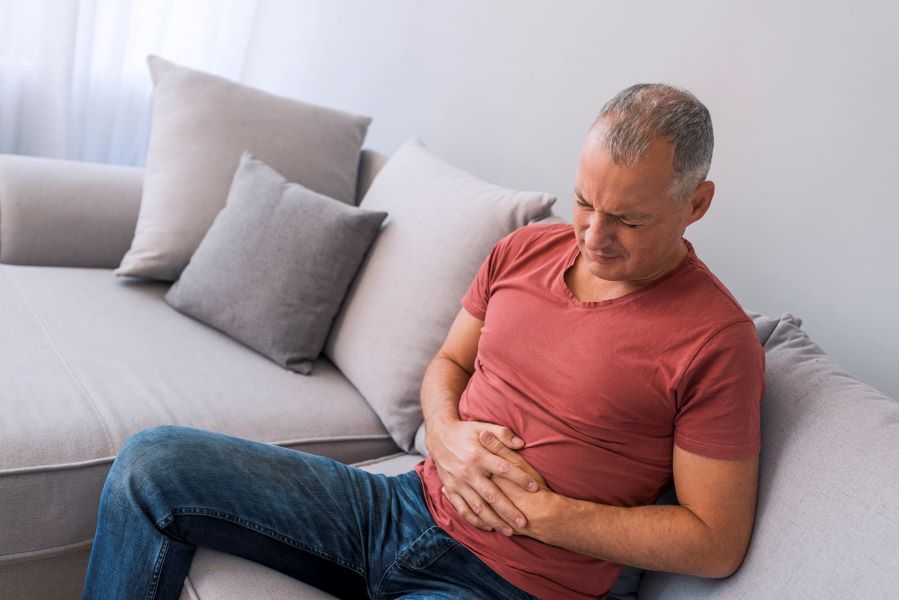What is diverticulitis?
Diverticulitis is caused by the inflammation of pouches within the intestines known as diverticula. These pouches are small but can cause big problems. Diverticulitis can occur in anyone but is most commonly found in people over the age of 40. Other risk factors include obesity, low fiber diet, family history and previous diverticulitis episodes.
If you have previously experienced diverticulitis, it may be easy to self-diagnose when you’re having a flare-up. However, these symptoms can look and feel like many other conditions. So how can you know for sure what’s causing your stomach pain?
Symptoms
According to Dr. Tyler Aasen, a gastroenterologist at The Iowa Clinic’s West Des Moines Campus, the most common symptom of diverticulitis is lower left abdominal pain. This can be accompanied by other symptoms including:
- Nausea
- Vomiting
- Low-grade fever
- Change in bowel habits
Are there treatment options?
While this condition can be very serious and bothersome, there is some good news.
“Most people who have diverticulitis don’t experience it again. Only about one third of patients who get diverticulitis are at risk to have recurrent episodes of diverticulitis,” says Dr. Aasen. While most cases of diverticulitis are mild, some cases can be severe and require hospitalization. For patients with diverticulitis, some general treatment recommendations may include:
- Antibiotics prescribed by your doctor, depending on symptom severity
- Eating a high-fiber diet
- Avoiding NSAID medications
- Fluids and pain control
In some severe cases, surgery or drainage may be required. It is also recommended that patients who have diverticulitis get a colonoscopy six to eight weeks after symptoms resolve, to look for colon cancer.
Do I have diverticulitis?
The first step towards diagnosis is to talk with your primary care provider. y can rule out other abdominal conditions first by completing a routine physical, blood work and learning more about your family medical history. If they are unable to find a clear diagnosis, then it would be time to look at other possible causes.
To get a clear-cut answer, you need a clear-cut image.
The only way to really know what’s going on inside your body is to take a deeper look inside, which can be done through medical imaging and radiology.
“Many GI diseases can have similar symptoms, so it often takes imaging, such as a CT scan with contrast, to sort out what the diagnosis is, particularly when it comes to diverticulitis” says Dr. Aasen. A radiologist will look for inflammation of the intestines and other telltale signs before offering a diagnosis.
If you are presenting the above symptoms, it’s time to talk with your primary care provider. From there, they will work with you and our team of specialists to diagnose and personalize your course of treatment.


